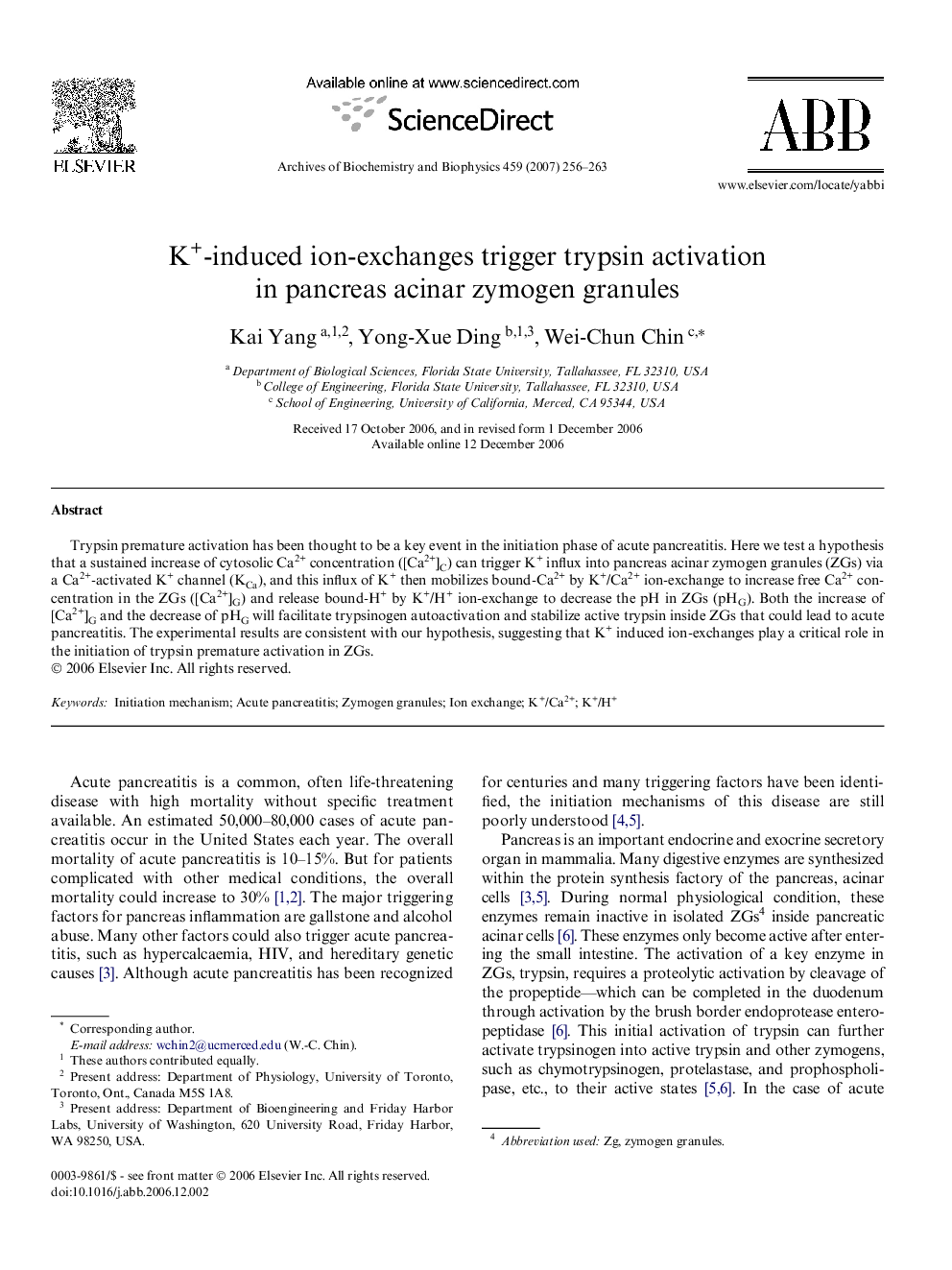| Article ID | Journal | Published Year | Pages | File Type |
|---|---|---|---|---|
| 1927224 | Archives of Biochemistry and Biophysics | 2007 | 8 Pages |
Abstract
Trypsin premature activation has been thought to be a key event in the initiation phase of acute pancreatitis. Here we test a hypothesis that a sustained increase of cytosolic Ca2+ concentration ([Ca2+]C) can trigger K+ influx into pancreas acinar zymogen granules (ZGs) via a Ca2+-activated K+ channel (KCa), and this influx of K+ then mobilizes bound-Ca2+ by K+/Ca2+ ion-exchange to increase free Ca2+ concentration in the ZGs ([Ca2+]G) and release bound-H+ by K+/H+ ion-exchange to decrease the pH in ZGs (pHG). Both the increase of [Ca2+]G and the decrease of pHG will facilitate trypsinogen autoactivation and stabilize active trypsin inside ZGs that could lead to acute pancreatitis. The experimental results are consistent with our hypothesis, suggesting that K+ induced ion-exchanges play a critical role in the initiation of trypsin premature activation in ZGs.
Related Topics
Life Sciences
Biochemistry, Genetics and Molecular Biology
Biochemistry
Authors
Kai Yang, Yong-Xue Ding, Wei-Chun Chin,
